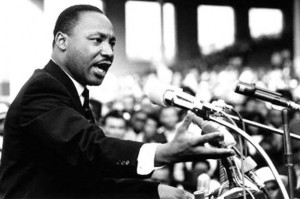I will extol the LORD at all times; his praise will always be on my lips. (Psalm 34:1)
 Years ago I remember Billy Graham talking about one of the ways he did devotions—5 psalms a day and one chapter of Proverbs. So at the end of each month, he would have read through both books. Whenever I am not in front of one of my computers doing my study/devotion/prayer (I am currently working on the Fruit of the Spirit) I use this 5 x 1 study to come into His Presence.
Years ago I remember Billy Graham talking about one of the ways he did devotions—5 psalms a day and one chapter of Proverbs. So at the end of each month, he would have read through both books. Whenever I am not in front of one of my computers doing my study/devotion/prayer (I am currently working on the Fruit of the Spirit) I use this 5 x 1 study to come into His Presence.
As a result, I have read through the Psalms countless times (at least for me), have been blessed by the LORD in those readings, and I can say that David and I have become best friends. And out of all of the books of the Bible, the Psalms are unique for me. Why?
Although these are songs/prayers that King David wrote, and historically speaking when we read the “I” in the psalm, it is David speaking, have you not put yourself in the first person as the “I” in that verse? David is not just writing about his experiences, he is writing about my experiences, which is why this book is so intensely personal for me.
So what is it that we are doing here? I will extol the LORD. The Hebrew word for extol is most often translated as bless. I will bless the LORD; and it is also defined as kneel.
 How often are we blessing and extolling the LORD? At all times. In Hebrew all times means at all events, all occasions, and at all times. This word is more than a generalization, it can be absolute; and in its definition are “all for every”, and “all the everywhere”. When God says all, He means all.
How often are we blessing and extolling the LORD? At all times. In Hebrew all times means at all events, all occasions, and at all times. This word is more than a generalization, it can be absolute; and in its definition are “all for every”, and “all the everywhere”. When God says all, He means all.
How does this work out practically in our lives? We can’t just be falling on our knees and blessing Him every moment of every day can we? No, but for each event, every situation that arises, and each place that we are, we can take that as an opportunity to bless Him; and when we bless Him, anyone who is watching may see that we have a relationship with the Most High.
Along the same lines, His praise will always be on my lips.
The word for praise is always translated as praise, but it can be a song of praise, which is what David has given us here.
The Hebrew word for always seems to be even more demanding on our time. It means continuously, continually, in perpetuity. The imagery behind the word means to stretch. When you stretch something, there is no break, no interruption.
Perhaps a way of looking at this is, His praise should be the single strand which stretches throughout my entire life, upon which we hang all other events, happenings and circumstances. This is a radical change in perspective, but isn’t it worth pondering?

 This is a great question, because it describes with uncanny accuracy what has been going on in our nation: the Supreme Court’s decision to legalize same sex marriage; the rush to approve and even applaud transgender procedures; and the tolerance-screamers, who show no resemblance to what the purportedly proclaim. I could go on describing our upside-down culture, but I’ve made my point. The foundations have collapsed.
This is a great question, because it describes with uncanny accuracy what has been going on in our nation: the Supreme Court’s decision to legalize same sex marriage; the rush to approve and even applaud transgender procedures; and the tolerance-screamers, who show no resemblance to what the purportedly proclaim. I could go on describing our upside-down culture, but I’ve made my point. The foundations have collapsed. I love this verse because it brings hope to an entire world.
I love this verse because it brings hope to an entire world. Do you wish you could say that? That the LORD God has come to you in the night and found in you nothing wrong? What is it about the night?
Do you wish you could say that? That the LORD God has come to you in the night and found in you nothing wrong? What is it about the night? For once you were full of darkness, but now you have light from the Lord. So live as people of light! For this light within you produces only what is good and right and true. Carefully determine what pleases the Lord. Take no part in the worthless deeds of evil and darkness; instead, expose them. (Ephesians 5:8-11)
For once you were full of darkness, but now you have light from the Lord. So live as people of light! For this light within you produces only what is good and right and true. Carefully determine what pleases the Lord. Take no part in the worthless deeds of evil and darkness; instead, expose them. (Ephesians 5:8-11)